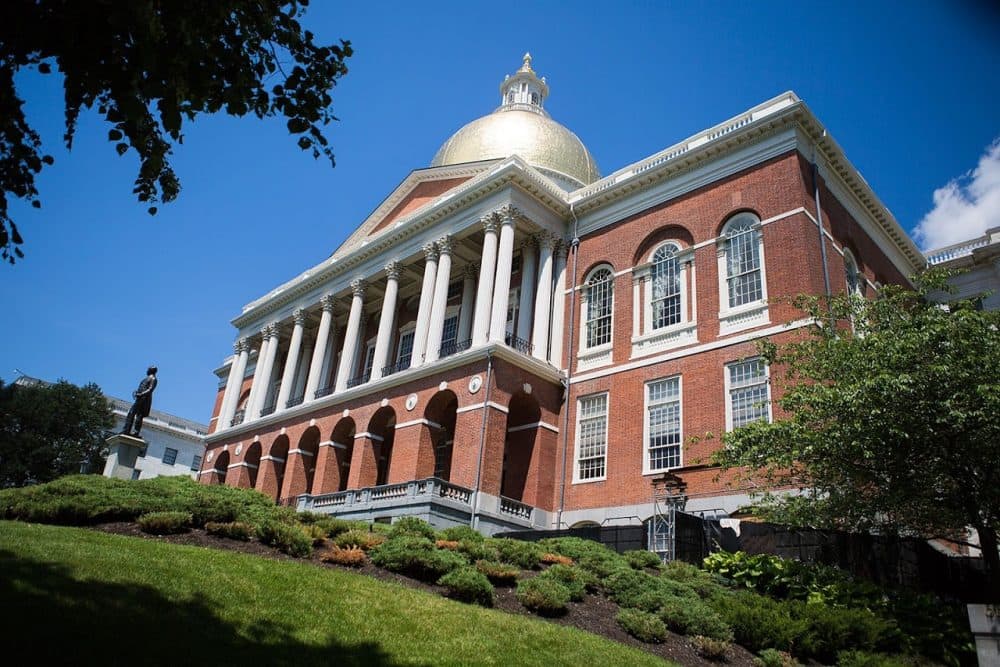Advertisement
State Arts Funding Increases By $2 Million For The 1st Time In 4 Years

State legislators this week overrode a governor veto, increasing arts funding by $2 million, marking a political victory for arts advocates that has been four years in the making. The win will ensure more arts dollars are funneled to cities and towns across the state.
Gov. Charlie Baker last week vetoed the addition of the $2 million in funding for the Massachusetts Cultural Council, the umbrella organization that distributes arts funding. This week, for the fourth year in a row, the Massachusetts Legislature overrode the governor’s veto, increasing the budget for the umbrella organization from $14.1 million to $16.1 million. It's the first increase in four years.
Despite the three previous overrides, however, this is the first year in four in which the budget has increased because the prior votes merely served to avoid cuts pushed by Baker. An overall healthier state economy gets the credit for the increase. “It helps that we have a surplus this year going into the final weeks,” said Sen. Adam Hinds.
“The big macro economic picture is certainly better,” agreed Greg Liakos, communications director of the Massachusetts Cultural Council. He also credits renewed advocacy. “We made a strong case this year for why an increase could make a big difference to our constituents,” he said. Added Matt Wilson, executive director of MASSCreative, a nonprofit statewide advocacy group for the arts and creative community, “We’ve been working over the past six years … to show our political leaders that this is important, and we’re starting to see a shift and recognition from our political leaders.”
Baker’s office did not immediately reply to requests for comment on the veto.
The vote to override the veto was overwhelmingly bipartisan (37-0 Senate, 141-8 in the House). “We’ve seen how arts and culture speak to who we are as a commonwealth,” said Hinds, who helped push through the override. “Even in my own district the creative economy has revitalized downtowns. It’s an issue the legislature really believes in," said Hinds, a Democrat who represents the Berkshires, Hampshire, Franklin and Hampden.
Rep. Mary Keefe, a Democrat from Worcester and the House leader of the fledgling Creative Caucus, said legislators have been sending a strong message to Baker "about what arts culture and tourism contribute to the overall economy in Massachusetts.”
The money is expected to boost the MCC's two largest programs: its funding of non-profits and smaller cultural councils. The MCC distributes funds to 320 nonprofits across the state, ranging from cultural behemoths like the Museum of Fine Arts and Plimouth Plantation to smaller local groups. In addition, it allocates money to 329 local councils across Massachusetts.
Advertisement
In Worcester, Keefe credits the local cultural council with supporting a variety of projects, ranging from capital improvements at the Hanover Theatre and Conservatory for the Performing Arts and the Worcester Art Museum. The lump sum granted to the council is distributed by an application and proposal process, “so very local efforts can create a difference,” said Keefe, who is also a graduate of Massachusetts College of Art and Design and a print-maker. “It creates an opportunity where all these partners can really work together.”
The MCC is also hoping to increase the amount it offers in its artists fellowships to $15,000. The MCC grants 30 to 35 such fellowships annually in fields from choreography and music to the visual arts, literature and poetry, and these currently top out at $12,000. The council is also looking to increase funding to programs in arts education and school development, which include artist residencies in schools and funding for groups like Zumix, the Hyde Square Task Force and Artists for Humanity, which work with young people, often in under-served areas.
The restored $16.1 million is still a tighter budget than the high of $19 million allocated for the arts in 2002. That funding came out of a budget approved before the recession of 2001–02, which saw state government tax collections decline by about 13.8 percent in 2001, leading to the elimination of $1 billion from the state budget, with larger cuts the following year, according to the Political Economy Research Institute at University of Massachusetts Amherst. The state economy largely recovered in the years following (growing until the economic crisis 2008), but lawmakers never fully restored arts funding.
“The effects of a boom and bust economy on state finances are surely the biggest factor,” said Liakos. Although arts funding had begun to regain ground after 2002, the crash of 2008 had a major impact. “When money gets tight, the arts historically haven’t been able to stand as a priority," said Keefe.
Advocates stress that these funds are an investment that more than repay the state. The arts contributed $2.3 billion to the state in 2015, the last hard numbers available, according to Americans for the Arts. In addition, a June report by the Boston Foundation shows that more than one in 10 jobs in the state come from leisure, hospitality or tourism. Although the state’s natural resources certainly draw visitors, this new report also cites “cultural attractions from Boston to the Berkshires” as significant contributions to a field that has been steadily growing since 2000.